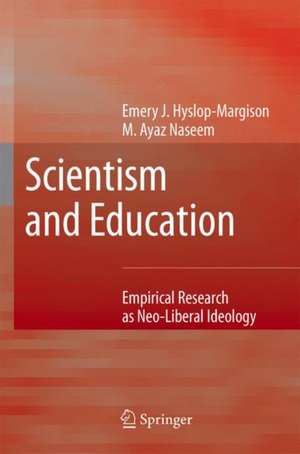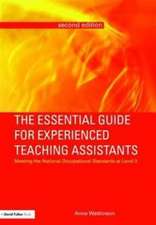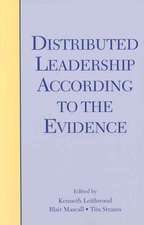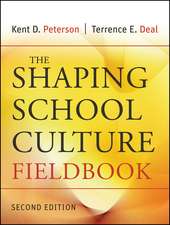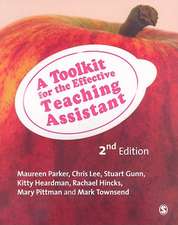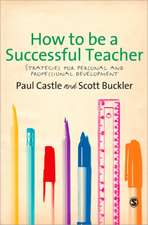Scientism and Education: Empirical Research as Neo-Liberal Ideology
Autor Emery J. Hyslop-Margison, Ayaz Naseemen Limba Engleză Hardback – 29 oct 2007
| Toate formatele și edițiile | Preț | Express |
|---|---|---|
| Paperback (1) | 633.53 lei 43-57 zile | |
| SPRINGER NETHERLANDS – 19 oct 2010 | 633.53 lei 43-57 zile | |
| Hardback (1) | 639.73 lei 43-57 zile | |
| SPRINGER NETHERLANDS – 29 oct 2007 | 639.73 lei 43-57 zile |
Preț: 639.73 lei
Preț vechi: 752.63 lei
-15% Nou
Puncte Express: 960
Preț estimativ în valută:
122.41€ • 128.15$ • 101.29£
122.41€ • 128.15$ • 101.29£
Carte tipărită la comandă
Livrare economică 07-21 aprilie
Preluare comenzi: 021 569.72.76
Specificații
ISBN-13: 9781402066771
ISBN-10: 1402066775
Pagini: 134
Ilustrații: XVIII, 134 p.
Dimensiuni: 155 x 235 x 11 mm
Greutate: 0.4 kg
Ediția:2007
Editura: SPRINGER NETHERLANDS
Colecția Springer
Locul publicării:Dordrecht, Netherlands
ISBN-10: 1402066775
Pagini: 134
Ilustrații: XVIII, 134 p.
Dimensiuni: 155 x 235 x 11 mm
Greutate: 0.4 kg
Ediția:2007
Editura: SPRINGER NETHERLANDS
Colecția Springer
Locul publicării:Dordrecht, Netherlands
Public țintă
ResearchCuprins
Education Research.- Epistemological Problems in Social Science Research.- Empirical Research in Education.- Education Research as Analytic Truths.- Empirical Research as Neo-liberal Ideology.
Textul de pe ultima copertă
This volume offers a critical examination of the growing pressure to apply scientific principles as a means to improve education. The authors trace the ideology of scientism to the early faith Auguste Comte placed in science and the scientific method as a panacea to all human problem solving.
By revealing many of the epistemological problems confronted by the social sciences, including education, the authors undermine the prevailing view that a science of education is possible or desirable. Besides revealing the epistemological problems associated with education research, they suggest that the instrumentalism and micro level responsibility related to scientism in education constitute a manipulative ideological smokescreen to distract public attention away from the structural inequities that generate disparate academic outcomes among students in industrialized democracies. The book deals a severe blow to the belief that science is a suitable lens through which to view or strengthen educational practice.
"One begins this book with the skeptical belief that it can’t be right. The task of reading, then, is to locate where Hyslop-Margison goes wrong to reach his radical and disturbing conclusions. At the very least, even the most skeptical will have to recognize that the unsayable—that current educational research has proven largely fruitless for discernable reasons—is certainly plausible. He brilliantly brings an issue that has been considered too eccentric to contemplate into the heart of current educational discourse. Everyone concerned with educational research—researchers and those policy-makers, administrators, and other educational workers who draw on the products of educational research should read this important book carefully."
Kieran Egan, Faculty of Education, Simon Fraser University
By revealing many of the epistemological problems confronted by the social sciences, including education, the authors undermine the prevailing view that a science of education is possible or desirable. Besides revealing the epistemological problems associated with education research, they suggest that the instrumentalism and micro level responsibility related to scientism in education constitute a manipulative ideological smokescreen to distract public attention away from the structural inequities that generate disparate academic outcomes among students in industrialized democracies. The book deals a severe blow to the belief that science is a suitable lens through which to view or strengthen educational practice.
"One begins this book with the skeptical belief that it can’t be right. The task of reading, then, is to locate where Hyslop-Margison goes wrong to reach his radical and disturbing conclusions. At the very least, even the most skeptical will have to recognize that the unsayable—that current educational research has proven largely fruitless for discernable reasons—is certainly plausible. He brilliantly brings an issue that has been considered too eccentric to contemplate into the heart of current educational discourse. Everyone concerned with educational research—researchers and those policy-makers, administrators, and other educational workers who draw on the products of educational research should read this important book carefully."
Kieran Egan, Faculty of Education, Simon Fraser University
Caracteristici
An accessible and trenchant critique of current research practice in education Offers an exposé of the ideological reasons behind empirical research in education Proposes alternative practices to strengthen democratic learning practices
